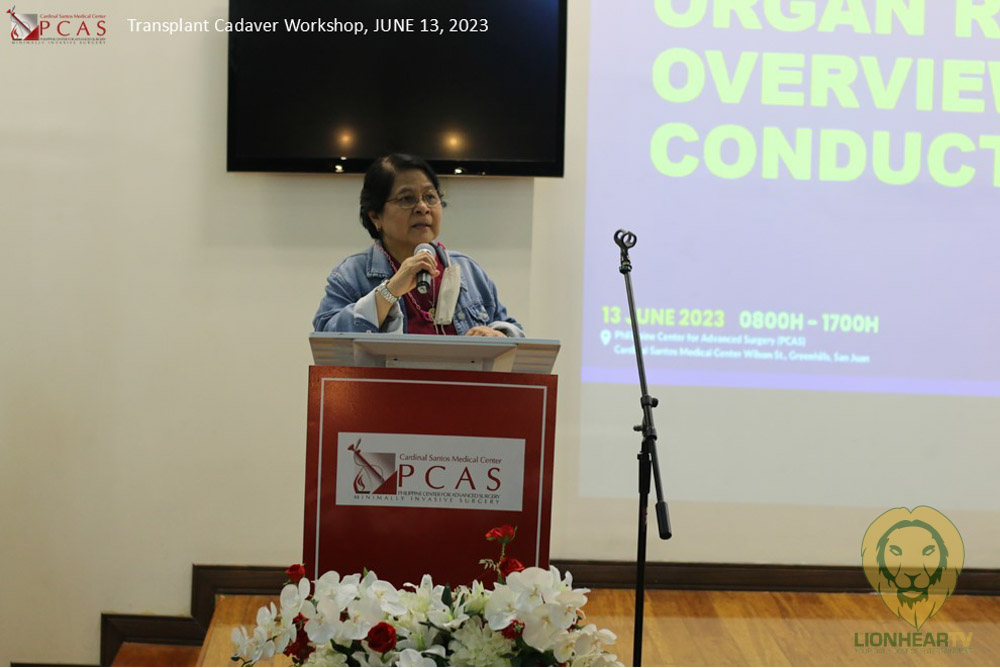San Juan City – In a groundbreaking initiative, the Philippine Society for Transplant Surgeons, through its leadership, Dr. Rose Marie O. Rosete-Liquete. Organized the first-ever cadaver skills training in multi-organ donor retrieval in the Philippines which was held at the PCAS, Cardinal Santos Medical Center, last June 13, 2023.
This achievement was made possible in collaboration with Medtronic, and it promises to pave the way for a much-needed improvement in organ transplantation across the country.
Cardinal Santos’ Philippine Center for Advanced Surgery (PCAS), home of the Philippines’ first Minimally Invasive Surgery Training Center, served as the ideal venue for the Deceased Donor Multi-Organ Retrieval Workshop, thanks to its unique combination of surgical training equipment and unique access to resources vital to this topic.
The World Health Organization observes Organ Donation Day on August 13 every year globally to raise awareness about the importance of organ donation and to make people aware of the misconceptions about organ donation.
For far too long, multi-organ retrieval has remained a rarity in the Philippines, a nation where prevailing fears have cast a shadow on the noble act of organ donation.
The common misconception that donors will be subject to mutilation and disfigurement has stifled the potential for life-saving transplants. However, within the hallowed halls of Cardinal Santos, this stigma has been met head-on, dismantled, and replaced with a renewed sense of purpose and hope.
Dr. Rose Marie O. Rosete-Liquete, PSTS President, stated, ” The scarcity of organ donors and organs for transplantation persists as a problem throughout the world.
Because of this, many patients with end-organ damage who are on the waiting list succumb to their disease condition while eagerly awaiting an organ. By promoting deceased organ donation, we can supplant this problem by not letting viable organs from brain-dead donors go to waste.”
Almost 100 medical professionals including surgeons, transplant coordinators, nurses from 13 hospitals took part in this workshop that will help exponentially increase positive clinical outcomes for organ donation.
During the comprehensive training program, the didactics focused on the proper utilization of cadavers for education and surgical training, a description on the current status of deceased organ donation in the country,
Introduction to the Deceased Donor Manual, Operating Room set-up, and the processes for organ retrieval surgery of various organ systems.
It also emphasized the vital role of deceased donation in expanding the organ donor pool and highlighted the importance of collaboration among surgeons from different organ systems, including heart, lung, liver, pancreas, small intestines, and kidney, and the essential role of organ procurement organizations.
The motivation behind this pioneering training was to equip surgeons with the necessary skills and knowledge to facilitate the actual retrieval of various organs from potential deceased donors.
By familiarizing surgeons with the chronological conduct of the steps of the operation and optimizing the quality of organs for transplantation, the goal is to enhance the availability and quality of donated organs for patients in need of life-saving transplants.
As the Philippines takes its first steps toward a new era of organ donation, Cardinal Santos stands at the forefront of this journey as a testament to its unwavering commitment to progress, to saving lives and to defying odds.


